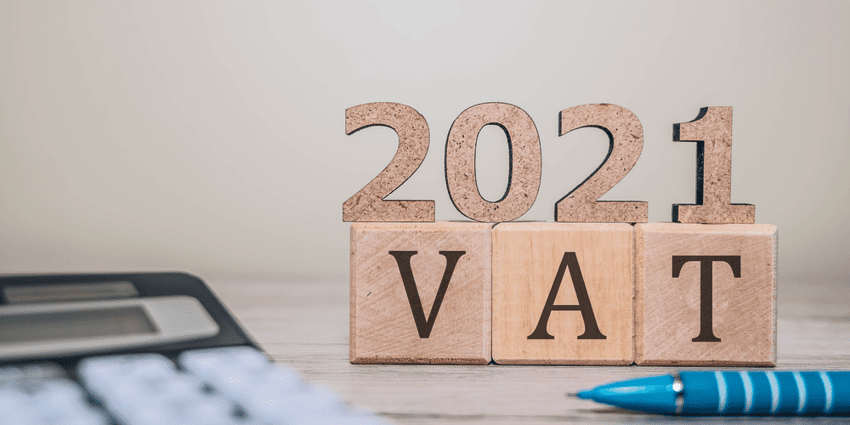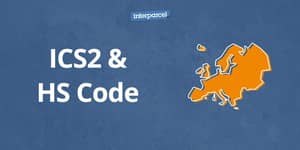The European Union (EU) is making important changes to its VAT rules, which will come into full effect from 1st July 2021.
These changes will mainly affect Business to Consumer (B2C) sales and online marketplaces based inside as well as outside the EU selling to consumers in the 27 EU member states.
The three biggest changes are:
- Removal of the €22 import VAT Exemption
- Introduction of an import one-stop shop (IOSS)
- Certain online marketplaces to become the VAT collector
Removal of the €22 import VAT exemption
What does this mean?
From July 1st 2021, VAT will be charged on all goods regardless of value.
For goods below or equal to the value of €150, VAT can either be charged at the time of the sale by using the new Import One Stop Shop (IOSS), or be collected from the end-customer by the customs declarant.
How does it affect my business?
If your business is registered outside the EU, you will no longer be able to export shipments to the EU under €22 free of VAT.
How can this work in practice?
You are an online business located in Australia, you sell a phone case worth €12 to someone living in the EU.
Before July 1st 2021
These goods would be imported into the EU free of VAT because the selling price of the goods is less than €22.
After July 1st 2021
Your goods will be charged with VAT regardless of value. VAT will be applied at the rate set in the buyer's delivery location.
Introduction of an import one stop shop (IOSS)
What does it mean?
For eCommerce shipments of €150 or below, the EU is introducing an option called - Import One-Stop Shop (IOSS). This will allow sellers or marketplaces to charge VAT at the point of sale and convey the payment to the authorities, clearing the goods through customs.
Using IOSS can make the process simpler and more transparent for the customer, it also will ensure a quicker customs process.
How does it affect me?
From the 1st of July 2021, online sellers based in the EU can register on the IOSS portal of their member state. For online sellers based outside the EU, they will need to appoint an EU-established intermediary to fulfil their VAT obligations under IOSS.
The IOSS registration is valid for all sales of import goods to buyers in the 27 EU member states. You can start using IOSS only for the goods sold as from 1st July 2021.
How can this work in practice?
An Australian eCommerce business sells sunglasses with a value of less than €150 to customers based in 5 different countries within the EU.
Before 1st July 2021 The Australian eCommerce business is obliged to register and account for VAT in each EU state they have sent goods to.
After 1st July 2021
The Australian eCommerce business has now two choices:
- The business can register for IOSS in one EU country, through an intermediary, charging VAT at the point of sale.
- They can continue as they do today with their customers paying VAT on importation.
Certain online marketplaces are becoming the VAT collector
What does it mean?
Marketplaces - an online platform that facilitates business-to-consumer (B2C) transactions.
Certain online marketplaces may be required to collect and account for VAT at point of sale if they register with the IOSS. This would apply for transactions up to €150. If a sale is valued over €150 then the seller is liable for the VAT collection.
How might it affect me?
If an online marketplace has opted for IOSS, eCommerce businesses selling through that platform must use the marketplace's IOSS number and then provide it to the party responsible for making the custom declaration.
For ecommerce businesses using multiple marketplace platforms, they should keep clear evidence of sales carried out through each platform. They should provide the corresponding IOSS numbers for each sale to the customs declarant.
How can this work in practice?
An eCommerce business based in Australia sells a €110 necklace to an EU customer through a marketplace that has opted for IOSS.
Before July 1st 2021
The customer buying the watch from the seller is responsible for paying the VAT on their purchase at the time of importation.
After July 1st 2021The marketplace the watch is being sold through uses the IOSS and becomes responsible for collecting the VAT from the customer at the time of sale and passes it on to relevant authorities.
General Questions
I am a business established outside the EU, how do I appoint an intermediary?
Businesses established outside the EU must appoint an intermediary to represent them and to file on their behalf. This intermediary can be located anywhere within the 27 EU states. You can find a full list of countries and websites here.
I am a business established outside the EU and I sell goods to EU customers exclusively through my own online shop. What do I need to do?
- From July 1st 2021, all commercial goods imported to the EU will be subject to VAT.
- You can register for IOSS. You will need to appoint an intermediary who will register you in the IOSS in the member state where they are established if you are registered outside of the EU.
- IOSS VAT ID # issued can be used to declare all your IOSS sales of goods to customers in all EU Member States.
- At the time of sale: charge the customer the VAT rate applicable to the goods in the member state to which the goods will be dispatched to.
I am a business established outside the EU and I sell goods to EU customers exclusively through multiple marketplace platforms. What do I need to do?
- Keep clear evidence of sales carried out via the marketplace platform.
- If you organise the transport for the goods, you need to provide your courier with the IOSS VAT ID that corresponds to the marketplace the sale was made from.
How is C2C affected?
- There is no change to C2C shipping.
A checklist
- Register for the IOSS platform for B2C shipments up to €150
- Appoint an intermediary to handle tax compliance and VAT return on your behalf in the EU
- Ensure your IOSS number is included in the shipment documentation for VAT purposes.
- Review your agreement with online marketplaces
- Clarify that they will handle VAT for B2C shipments up to €150
 Are you affected by the Sendle service suspension? We have an immediate shipping solution for you!
Are you affected by the Sendle service suspension? We have an immediate shipping solution for you!










 Facebook
Facebook Twitter
Twitter Instagram
Instagram Linked In
Linked In YouTube
YouTube